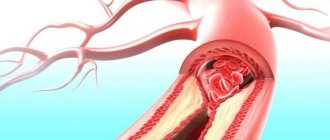What is the role of hemoglobin in the body?
Probably everyone knows the fact that blood is the most important fluid in the body. Many books can be written (and indeed have been written) about its properties, purpose and importance in general. But now we will talk specifically about the composition of the blood, and specifically about hemoglobin.
As mentioned above, hemoglobin is a complex protein substance. Hemoglobin is responsible for ensuring that each vessel in our body receives its necessary portion of air (more precisely, oxygen) from the lungs.
But what happens when the level of hemoglobin in the blood increases or decreases? Here's what: blood literally becomes thinner when hemoglobin is low, and thicker when hemoglobin is high. Accordingly, with low hemoglobin, the blood is “faster”, which is why it does not have time to “carry” air into each vessel. And when it’s elevated, the blood, on the contrary, is thicker, and this creates difficulties in penetrating particularly small vessels and hard-to-reach parts of our body.
Accordingly, when the level of hemoglobin decreases/increases, the human body becomes not entirely healthy.
Hemoglobin: how to increase during pregnancy. What does a violation of hemoglobin levels lead to?
- A person experiences a “loss of strength” - he becomes drowsy, lethargic and, to one degree or another, feels general weakness throughout the body.
- Accordingly, a person becomes less efficient - he has no desire to do anything, and in general, there is no strength to do usual things. Some people experience absent-mindedness and forgetfulness, which also does not contribute to good performance.
- Even with little exertion, he may experience shortness of breath. Also, a person often feels that his hands (fingers) and feet are cold, he constantly wraps himself up, but even the warmest socks do not help.
- Sometimes there is a desire to eat a product that you would not eat in normal life or to smell something that usually seems disgusting.
- A person with impaired hemoglobin levels may experience frequent dizziness, dry or lax skin, or increased hair loss and brittle nails.
- Iron deficiency anemia often occurs due to a lack of iron, which is one of the main components of hemoglobin. This is the most common “version” of anemia that can occur during pregnancy.
- Hemoglobin may be low if you have recently donated or simply lost a large amount of blood. A lack of folic acid can also contribute to this condition. Doctors often prescribe it for use if you need to quickly increase hemoglobin during pregnancy.
- Very often, hemoglobin decreases if a person (especially girls) starves himself or goes on strict, rigid diets. Therefore, all nutritionists strictly prohibit any drastic diets based on one or two foods, recommending a balanced and proper diet.
Why might a expectant mother’s hemoglobin “fall”?
- A pregnant woman experiences an increase in blood volume, due to which the basic life support processes of the fetus occur. Thus, the blood, roughly speaking, is “diluted”, and the level of hemoglobin, which was more or less normal, becomes low. As a rule, the increase in volume occurs in the twentieth and after weeks of pregnancy.
- The child himself, who in the process of development needs a large number of different substances, including iron, “takes” these substances from the mother’s body.
- Accordingly, both processes described above increase if the pregnancy is multiple - twins, triplets, etc.
- If conception occurs within a short time after birth. Thus, the mother’s body did not have time to recover from the previous pregnancy. Therefore, the age difference in children is important not only from a financial point of view - the mother must be full of strength and physically ready for the next child.
- In addition, it is possible that the iron that enters the body is simply not absorbed due to intestinal dysbiosis. In the first months of pregnancy, the well-known toxicosis interferes with the absorption of iron in the body.
- Iron can be “wasted” much faster than usual if mommy experiences an exacerbation of any chronic diseases.
Reasons for decreased hemoglobin levels
The reasons for low hemoglobin in children may be:
- insufficient synthesis due to iron deficiency (iron deficiency anemia);
- acute blood loss (for example, due to injury) or chronic (frequent nosebleeds or heavy periods in girls) - posthemorrhagic anemia;
- increased destruction of red blood cells (hemolytic anemia) due to exposure to toxic substances or due to disease.
Children most often develop iron deficiency anemia.
Iron deficiency can occur for several reasons.
During intrauterine development, the child's body accumulates a supply of iron (from the mother's body), which is used for the synthesis of hemoglobin after the birth of the baby, and these reserves are sufficient for about six months.
If a pregnant woman had anemia, then the child’s iron supply will be insufficient, and the baby will develop anemia in the first six months of life. Poor nutrition, infectious diseases, and bad habits can contribute to the development of anemia in the expectant mother.
In the second half of the year, the normal hemoglobin level in an infant depends entirely on continued breastfeeding and the mother’s proper diet. Despite the fact that the iron content in breast milk is low, the protein ferritin contained in it promotes good absorption (50%) of iron.
Insufficient food intake is one of the causes of anemia. Since about 5% of iron is excreted from the body daily in feces, it must be replenished through diet. Intensive weight gain in a baby during the first year of life increases the body's needs for red blood cells (and, therefore, iron), but these needs are not met.
Diseases of the digestive system (gastritis, peptic ulcer of the stomach or duodenum, enteritis) and a lack of vitamin B12 can negatively affect the absorption of iron supplied with food.
When artificial feeding, the use of cow's and goat's milk and semolina instead of an adapted milk formula leads to the fact that iron ceases to be absorbed due to its transformation into an insoluble complex. Moreover, the cause of anemia lies not only in the low iron content in cow's milk and its insufficient absorption, but also in intestinal bleeding caused by the consumption of unadapted dairy products (due to microscopic leakage of blood from the vessels).
The exact cause of these bleedings is not clear. It is believed that the intolerance of the child's body to cow's milk protein is important. As the baby grows, these manifestations decrease, and after 2 years they are not observed.
Early introduction of complementary foods and violation of the rules also contribute to the development of anemia.
What is the normal hemoglobin level during pregnancy?
The standard indicator of “normality” for hemoglobin is 120 g/l. For pregnant women, the optimal range is from 120 g/l to 160 g/l. If hemoglobin is below the threshold, then mommy begins to develop anemia - that is, anemia.
Three stages of anemia:
- Mild anemia, in which the hemoglobin level is 110-90 g/l. In this case, hemoglobin easily rises without drug intervention; you just need to eat foods that are high in iron.
- Middle stage at a level of 90-70 g/l. In this case, it is already worth thinking about medications and, depending on the dynamics of hemoglobin, take them (of course, only as prescribed by a doctor).
- A severe stage, in which hemoglobin is 70 g/l or even less (which is already bad and rare). Of course, it is very difficult to reach this stage with constant supervision from specialists.
Only forty percent of pregnant women suffer from anemia, but even these figures indicate that all medical examinations and observations should be mandatory and constant.
Even if you don't have problems with your hemoglobin levels, breastfeeding can make a big difference in this situation. Therefore, proper nutrition is highly recommended. It is also possible to “level” hemoglobin with medication, but it must be agreed with specialists.
Most often, the problem of anemia occurs in pregnant women who live in places with a rather poor environment - in cities, especially large ones. It is especially dangerous if anemia occurs in the expectant mother before the 16th week of fetal development.
There are some physiological characteristics of a woman in which low hemoglobin may be observed:
- Tendency to low blood pressure.
- Some of the diseases of the internal organs, internal bleeding.
- Stress, unnecessary anxiety.
- Poor nutrition, lack or vice versa, strong appetite and indigestion.
- Lack of vitamin B12 in the body.
- Tendency to frequent colds and flu.
- Little rest and constant overwork.
If you look superficially, it seems that bringing hemoglobin back to normal is as easy as shelling pears - you need to be less nervous, eat right (especially by including foods high in iron in your diet). But, in fact, everything is not so simple, and if hemoglobin levels deviate greatly from the norm, then it is not so easy to fix.
Depending on the degree of anemia, there are three options for how to quickly increase hemoglobin during pregnancy:
- Taking medications containing iron (together with folic acid and vitamin C). This option is considered only in conjunction with a thorough examination by specialists and medical prescription.
- Traditional methods of increasing iron levels in the blood. It is also worth consulting with a doctor, since not all traditional methods are suitable for everyone, and some are completely incompatible with each other.
- Eating foods high in iron: buckwheat, apples, etc.
Products of plant and animal origin to increase hemoglobin
How to increase hemoglobin at home? First of all, you need to adjust your diet. Until recently, it was believed (and even today this opinion is quite widespread) that iron in any form helps to increase hemoglobin. Therefore, doctors recommended increasing the consumption of buckwheat, pomegranates, and apples. These products will really help normalize the content of this substance. However, if you are wondering how to quickly increase hemoglobin, then you should “lean” on animal products. Modern doctors agree that it is animal proteins, which contain iron, that our body needs to build hemoglobin. In this case, it will be absorbed much better. It is recommended to include red meat (beef) in the menu more often. However, naturally, meat should not completely replace all vegetables, cereals, fruits and other plant products that increase hemoglobin. Nutrition should be complete and varied.
How to quickly increase hemoglobin during pregnancy?
Of course, the fastest way to raise hemoglobin levels is to administer drugs (intravenously or intramuscularly) containing iron. But, since during pregnancy you need to be careful when taking any medications, this method is used only with a very low level of hemoglobin - with the most severe level of anemia. Of course, the prescription and use of such drugs must be agreed upon with specialists.
The drugs that are used in this case include the following:
Venofer
A medicine based on iron hydroxide. This drug is prescribed to patients suffering from anemia. It is administered intravenously. It is strictly prohibited for use in the first trimester; the attending physician can prescribe it only from the second trimester of pregnancy.
Ferrum lek
A medicine that has three types: injection solution, syrup and chewable tablets. It is prescribed in case of anemia, improper absorption of iron in the gastrointestinal tract, as well as for the prevention of iron deficiency during pregnancy and lactation. There are also contraindications for use in the first trimester of pregnancy.
Fenyuls
A medicine that maintains normal hemoglobin levels even with high iron consumption in the body. As you can understand from the above, this is an excellent way to quickly increase hemoglobin during pregnancy, or more precisely, to keep it at a normal level. The drug is based on ferrous sulfate, ascorbic acid (helps better absorption of iron) and B vitamins. Do not forget that during pregnancy you are responsible for two lives - yours and your child's, so you can take any medications only on the recommendation of a doctor.
Sorbifer Durules
A medicine prescribed for the treatment and prevention of anemia from iron deficiency. The base is ferrous sulfate and ascorbic acid. A distinctive feature of this drug is that it is not dangerous during the entire period of pregnancy and lactation. However, you still need to be extremely careful - if at least one of the side effects occurs - nausea, diarrhea, allergic reaction, and so on - you should immediately consult a doctor.
Maltofer and maltofer foul
Two drugs that are essentially the same thing. It is based on iron polymaltosate. But Maltofer Fol also contains folic acid, which is why this particular drug is prescribed during pregnancy and lactation. Moreover, this drug is taken not only until hemoglobin returns to normal - it is usually taken until childbirth. This medicine has no side effects, which is very much appreciated by expectant mothers, whose body has a special reaction even to the “wrong” one.
Do not forget that these drugs contain a very high iron content, therefore, if you are already taking any vitamins that contain iron, then you need (with the help of a doctor and logic) to make a choice in favor of one of the drugs in order avoid oversaturation of the body with iron. Beware of an overdose of components, it is no less dangerous than a deficiency!
How can you increase your hemoglobin levels with foods? Table.
The best measure for the treatment and prevention of stage I anemia is a complete, balanced diet provided with microelements and vitamins.
List of products recommended for daily consumption and that help increase hemoglobin during pregnancy:
- Meat/offal (lungs, heart, beef tongue, liver), sea fish, poultry and eggs.
- Legumes/cereals (rye, buckwheat, peas, lentils, mung beans, beans).
- Berries/fruits (pear, cranberry, apple, strawberry, peach, plum, pomegranate, currant, banana, persimmon, pumpkin, raspberry).
- Dried fruits (sultanas, dried apricots, almonds, walnuts).
- Greens/vegetables (tomato, carrots, beets, potatoes, broccoli, dill, lettuce, parsley, onions).
- Mushrooms, seaweed, black caviar, olive oil, chocolate or cocoa.
How to quickly increase hemoglobin during pregnancy without medications?
When a new life develops in your body, as a rule, you are very afraid of taking various chemical compounds, including pills. In fact, this is a fairly justified fear, because many iron-containing drugs have either not been tested at all for their effects on pregnant women, or have been tested, but still, it is virtually impossible to predict all reactions. So what should you do if you have low hemoglobin levels? The answer is simple: turn to the wisdom of our grandmothers.
Of course, it is worth remembering that a rapid decrease in hemoglobin at home is also possible during pregnancy, but you must remember that the level of anemia should be practically zero. In any case, any manipulations must be agreed upon with the supervising physician.
Folk remedies for lowering hemoglobin during pregnancy
Let's start with the fact that, as a rule, any folk remedies for anemia consist of obtaining the iron missing in the body naturally: through foods, decoctions, juices, infusions, and so on. For example:
- You can brew blackberry leaves or dry rose hips and drink 3-4 times a day. This not only enriches the body with essential iron, but also has a beneficial effect on the gastrointestinal tract.
- A healthy and tasty mixture of dried apricots, dates, raisins, lemon, walnuts and honey is mixed. All these ingredients are taken in equal proportions, thoroughly ground in a blender or meat grinder until smooth and taken every day, a tablespoon half an hour before meals.
- A fruit drink made from fresh cranberries with the addition of apple and beet juice in a 2/2/1 ratio helps to raise hemoglobin very well. This drink is taken before meals 3-4 times a day.
- And finally, the simplest thing - every morning we eat a teaspoon of honey on an empty stomach, 10-20 minutes before breakfast.
Hemoglobin can also be increased with the help of foods
It has been said more than once above that there are a fairly large number of products that themselves contain iron. And if sometimes you don’t want to prepare yourself a cranberry decoction, then you can quickly increase your hemoglobin by consuming the following foods.
- The first product that is a kind of champion in iron content is pistachios. 100 grams of pistachios contain 60 milligrams of iron.
- Second place is shared by dried mushrooms, halva, pork, black caviar and quail eggs.
- The third (and all other places) is beef, any seafood and cereals.
Among other things, there is a lot of iron in vegetables. Onions, pumpkin, cabbage, radishes, garlic, asparagus, beets, broccoli - all these products, which can probably be bought at any market, and some lucky women even have them growing in their gardens, are incredibly healthy and tasty in their own way.
Seasonal berries and fruits, which are tasty both in their pure form and in the form of decoctions, juices and fruit drinks, bring special benefits. In general, fruits and vegetables during pregnancy are an irreplaceable source of vitamins and essential elements. This, by the way, is another reason why it is better for a pregnant girl to be in the village - besides the fact that there is fresh air and better ecology, it is thanks to this ecology that the healthiest fruits and vegetables grow there.
The most iron is found in pomegranate, strawberries, plums, raspberries, black currants, wild strawberries and blueberries.
In addition, do not forget that it is not enough to get the missing iron into the body - you also need to do everything so that it is well absorbed and “stays” with us. To do this, you need to remember that foods that interfere with the absorption of iron (and not only it) are coffee, cheese and milk. It would be ideal, of course, if you completely exclude them from your diet while getting rid of anemia, but you can simply not combine them with foods that contain iron.
And, of course, expectant mothers should not forget about walks in the fresh air, which replace some physical activity and are simply beneficial for the muscles and the body as a whole. Just don't overexert yourself, and under no circumstances do anything that your doctor hasn't recommended you do.
What reasons can prevent a rapid increase in hemoglobin during pregnancy?
- Black tea. It is known to contain a lot of caffeine, and it, like coffee, interferes with the absorption of iron in the body. Therefore, if a pregnant woman drinks a lot of black tea, then there is a high risk that she will develop anemia. The solution is very simple - replace black tea with green tea.
- Hormonal disbalance. Given that hormonal imbalances generally have an unfavorable effect on the entire body, it is not surprising that they manifest themselves here too.
- Infectious diseases. An infection, just like a hormonal imbalance, affects the functioning of the entire body as a whole, so it can manifest itself here too.
- Unstable menstruation. Girls who have an unstable cycle, and whose periods themselves are quite sharp and heavy, are more likely to have difficulties associated with hemoglobin.
- Donation. Well, to be more precise, excessive donation. That is, the more often you visited blood donation centers, the more you lower your hemoglobin level. However, in this case, iron levels are restored a few days after blood donation. Moreover, in some cases it even increases. So donation, in principle, is useful, but you also need to be careful with it.
- Diets and poor nutrition. Our article has already said that the less balanced your food is, the greater the chance that your body simply does not receive the required amount of beneficial elements. Including iron.
The fact that your hemoglobin level has decreased during pregnancy is absolutely normal and completely correctable. There can be a great many factors for this, so the main thing is not to panic. Remember that stress can make things worse! Walk more, don’t forget to rest, and be sure to complete all the procedures and examinations you need. And be sure to follow all the recommendations of the doctor observing you. You may not be able to quickly raise hemoglobin, but during pregnancy it is not always possible to completely raise it to the ideal level. Be careful and take care of your baby with all your might!
Increased hemoglobin in pregnant women: what to do?
Lowering hemoglobin is usually easier for women than increasing it. To do this, it is recommended to follow these tips:
- Drink more, and it should be clean water. You need at least six to seven glasses a day. If a pregnant woman plays sports or works a lot, this amount should be increased to nine to ten glasses of liquid per day;
- It is important to adhere to a diet that helps reduce blood viscosity and normalize the production of red blood cells. You need to increase the share of fish and seafood in the daily menu and try to consume more products such as olive oil and meat;
- Drugs such as Cardiomagnyl, Curantin, Trental and others are designed to reduce blood viscosity. You should not start taking such medications on your own; it can be harmful. That is why their use should be prescribed strictly by a doctor and after the appropriate blood test has been taken.
How to lower hemoglobin in pregnant women? This issue should be resolved exclusively by a doctor and only after taking a blood test, which is designed to determine the concentration of hemoglobin in the blood.
If the hemoglobin level begins to decrease sharply, the doctor should prescribe medications that contain large amounts of iron. This will help adjust its content in the blood. But it is much healthier to stick to the rules of nutrition. Of course, the result will take longer to achieve, but it is safer for the young mother.
In addition, walks in the fresh air should not be neglected. There will be benefits from both sports exercises and breathing exercises.
Prevention of anemia
You should be wary of developing anemia during pregnancy:
- For those who had anemia in a previous pregnancy,
- under 18 and over 35 years old,
- vegetarians,
- suffering from chronic gastrointestinal diseases,
- expecting twins.
The amount of hemoglobin in people with an active lifestyle is higher than in those who do not play sports and spend little time outdoors. Everyone has long known that while expecting a baby, you should get a good night's sleep, maintaining a daily routine is important, and the process of hematopoiesis for the most part occurs during night sleep. Without enough sleep, hemoglobin can decrease even with a nutritious, healthy diet. If symptoms of anemia appear, you should not read on the Internet “how to quickly increase hemoglobin during pregnancy” and self-medicate. This method can be harmful, especially if there is actually no iron deficiency. Therefore, in order not to harm herself and the unborn child, the mother needs to be constantly under the supervision of a doctor and not swallow iron supplements on her own.
For the good condition of a woman expecting a child, conscious, nutritious, natural nutrition is very important. Strong physical exercise, walks, constant medical supervision and care from loved ones.
Normal blood content
The average hemoglobin level in a non-pregnant adult woman is 139 grams per liter of blood. During pregnancy, this figure decreases slightly. The following readings are not a deviation:
- first trimester – 132 grams per liter;
- second trimester – 120 grams per liter;
- third trimester – 112 grams per liter.
After childbirth, the hemoglobin level returns to normal, but this will take from 1 to 6 months (the recovery period for each woman may vary, but after the birth of the first child it is longer than after the second and all subsequent children).
In the first trimester, in particular, for 2–3 months, hemoglobin may increase slightly, which is due to the cessation of menstruation. This is also a normal phenomenon and is not a deviation from the norm - this is the physiology of the female body.
Diet for iron deficiency anemia
To solve the problem with hemoglobin, you should eat foods that contain iron and combine them correctly. During pregnancy, hemoglobin is raised not only by correcting nutrition, but also by prescribing pills. After all, already formed anemia cannot be cured with food alone.
To summarize the above: you need to eat varied and healthy - exclude marinades, fast food, canned food, sweets, ready-made sauces. Ready-made meat products, sausages, sausages, hams, and carbonated meats contain additives and dyes; it is better to replace them with boiled or stewed meat.
Why might hemoglobin be reduced?
Before talking about the effectiveness of various remedies, it is important to understand the causes of the condition. The main reason for low hemoglobin levels in the body is anemia
The main reason for low hemoglobin levels in the body is anemia.
There are many reasons for the development of anemia, but in 90% of cases the cause is a lack of important elements necessary for the synthesis of hemoglobin - iron, folic acid, cyanocobalamin (vitamin B12).
The remaining 10% is due to various hereditary diseases and intoxications.
The main reasons include:
- Insufficient intake of iron or B vitamins, folic acid from food.
- Diseases of the stomach and duodenum, accompanied by atrophic changes in the mucous membrane.
- Metabolic pathologies with disturbances in fermentation and iron transport.
- Chronic blood loss, which occurs in a wide range of pathologies: from peptic ulcers to dysfunctional uterine bleeding.
- Haemorrhoids.
- Intoxication (including chronic). The most common causes of anemia are: tobacco smoke, heavy metal salts.
- Oncological diseases. In this condition, hematopoiesis is inhibited.
- Helminthic infestations.
Separately, it should be noted the prevalence of pathology. According to scientists from the USA, the incidence of anemia in adult women and men is 25%. Approximately 70% of patients learn about this diagnosis by chance during examination for other pathologies or during professional examinations.
Other Important Recommendations
You can also increase hemoglobin using the following tips and recommendations:
- Include the following dessert in your diet: a mixture of dried apricots, raisins, and walnuts. To prepare a hemoglobin mixture, you will need to take 50–60 grams of the above components, grind them using a meat grinder, coffee grinder or blender and add honey (the same amount as the ground mixture). Store in the refrigerator, take 1 teaspoon 3 times a day. The course is at least 2 weeks, further – if necessary.
- Take a course of the following vitamin complexes (to choose from): Complivit iron, Perfectil, Sorbifer, Fenyuls. You should first consult with your doctor.
- It is also important to maintain a daily routine (activity/rest). The process of hematopoiesis itself mainly occurs at night during sleep. Accordingly, chronic insomnia can provoke hemoglobin deficiency, even if the pregnant woman follows a healthy diet.
Hemoglobin deficiency does not always indicate a lack of iron or certain vitamins. This condition can be caused by certain diseases. This even includes blood cancer. Therefore, if you suspect a hemoglobin deficiency, you should not delay going to the doctor. It must be remembered that for the unborn child this is many times more dangerous than for the expectant mother.
What should you limit?
It is recommended to avoid the following foods during pregnancy, as they most contribute to a decrease in hemoglobin:
- Pasta. In fact, this includes everything that is prepared on the basis of wheat flour (without bran).
- Dairy products. Almost all of them contain calcium in fairly large quantities, which impairs the absorption of iron. This directly affects hemoglobin levels. This includes almost all types of cheeses, butter, sour cream, kefir, yoghurts and other dairy desserts, condensed milk, fermented baked milk.
- Chicken egg whites. They also impair the absorption of iron by interfering with biochemical reactions with it involving amino acids. Interestingly, consuming chicken proteins has virtually no effect on the concentration of iron and folic acid (unlike dairy products and any others that contain calcium).









